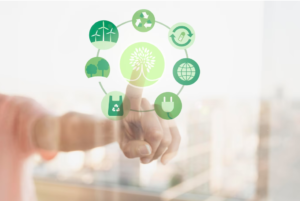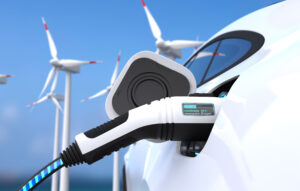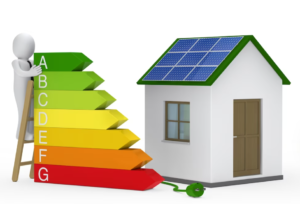As the world grapples with the urgent need to address climate change, the United Kingdom has embarked on an ambitious journey towards achieving net zero carbon emissions. The commitment to reach this monumental goal by 2050 has set the stage for a dramatic transformation across industries, policies, and lifestyles. This article delves into the UK’s path to net zero, exploring the challenges, opportunities, and key strategies to shape a sustainable future for future generations.
Understanding Net Zero

Net zero refers to the state in which a country’s greenhouse gas emissions are balanced by removing an equivalent amount of greenhouse gases from the atmosphere. It signifies a critical shift towards decarbonisation, aiming to minimise the overall impact of human activities on the environment.
Policy and Legislation
The UK government has taken bold steps to pave the way for a net-zero future. The Climate Change Act 2008 set the foundation for emissions reduction, while subsequent legislation has reinforced commitments to renewable energy, energy efficiency, and sustainable practices. The introduction of the Net Zero Carbon Buildings Framework, Clean Growth Strategy, and Green Industrial Revolution plan demonstrate the government’s determination to drive systemic change across various sectors.
Transitioning to Renewable Energy

Transitioning from fossil fuels to renewable energy sources is a linchpin of the net-zero agenda. The UK has made significant progress in expanding renewable energy capacity, particularly wind and solar power. The growth of offshore wind farms, investment in innovative technologies, and support for community energy projects drive the transition towards a cleaner and more sustainable energy mix.
Electrification and Sustainable Transport
 Transportation is a major contributor to carbon emissions. The UK government has set ambitious targets to phase out petrol and diesel vehicles by 2030, promoting the adoption of electric vehicles (EVs) and investing in charging infrastructure. Furthermore, initiatives encouraging walking, cycling, and public transport aim to create greener and more accessible transport options for all.
Transportation is a major contributor to carbon emissions. The UK government has set ambitious targets to phase out petrol and diesel vehicles by 2030, promoting the adoption of electric vehicles (EVs) and investing in charging infrastructure. Furthermore, initiatives encouraging walking, cycling, and public transport aim to create greener and more accessible transport options for all.
Green Building and Sustainable Infrastructure
The construction and operation of buildings contribute heavily to carbon emissions. The UK prioritises improving energy efficiency in existing properties and enforcing strict standards for new builds. Emphasising green practices, sustainable materials, and smart technologies will deliver healthier, more energy-efficient homes and workplaces.
Circular Economy and Waste Management
Transitioning to a circular economy is essential for cutting waste and reducing resource use. The UK actively supports recycling, waste reduction, and innovative methods to address the growing waste issue. Adopting a circular model will lower environmental impact, boost economic prospects, and build a stronger, more sustainable society.
Sustainable Agriculture and Land Use

Addressing emissions from agriculture and land use is crucial to achieving net zero. The UK aims to transform farming practices, support sustainable land management, and promote nature-based solutions such as reforestation and peatland restoration. These measures will mitigate greenhouse gas emissions, enhance biodiversity, and preserve natural ecosystems.
Green Finance and Investment

Transitioning to a net-zero economy requires major investment in sustainable projects and technologies. The UK leads green finance efforts by creating frameworks to attract private capital for sustainable initiatives. In financial decisions, green bonds, investment funds, and environmental considerations are vital for funding the transition and securing resources.
The UK’s journey to net zero is a significant challenge that demands collaboration, innovation, and strong commitment. The UK is advancing towards a greener and more prosperous future by supporting renewable energy, sustainable practices, and effective policies. Despite this progress, challenges persist. These include overcoming technological obstacles, ensuring fairness for all communities, and sustaining political support.
Collaboration, public engagement, and determination will help the UK achieve sustainability goals. This approach can set an example for other nations. Together, we can reduce climate risks and create a fair, resilient, thriving society for future generations.
Where does Connect fit in?

We can all support the UK’s journey to net zero. Previous articles have explored ways individuals can help achieve this goal. “Things to Do to Save Energy in Your Home” offers practical tips and simple steps for reducing energy use and improving home sustainability.
“The Ideology of Saving the Planet” examines the broader ideas behind efforts to tackle climate change. It highlights the need for collective action, sustainable habits, and mindful consumer choices to create a positive environmental impact.
“How Green Mortgages Support Sustainability” discusses green mortgages and their role in promoting eco-friendly home improvements. These financial products encourage energy-efficient upgrades, helping homeowners lower their carbon footprint and support sustainable living.
These articles aim to equip readers with insights and actionable steps to build a sustainable future. We can create a greener and more resilient planet for future generations.
Thank you for reading our publication “The UK Embraces Net Zero Desire | A Sustainable Future.” Stay “Connect“-ed for more updates soon!






